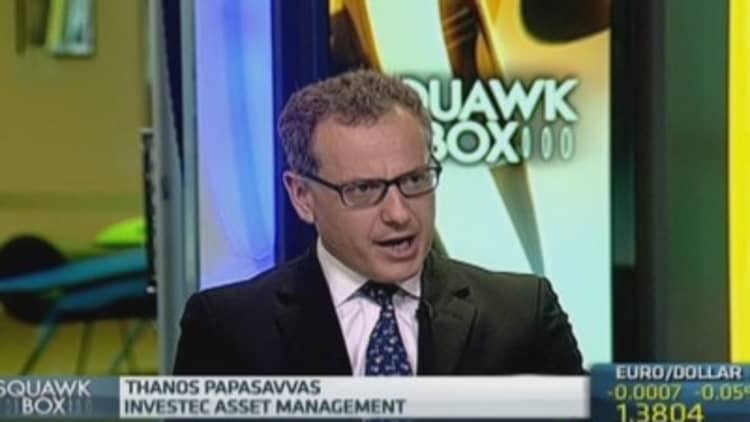The euro trod water in early European trade on Wednesday with all eyes on euro zone inflation numbers due later, while offshore rates for China's yuan fell again, taking it to an 18-month low against the dollar.
Preliminary German numbers on Tuesday hinted at a lower number than the 0.8 percent consensus forecast for euro zone inflation. Traders and analysts said that was putting more pressure on an otherwise buoyant single currency.
The yen was also a touch higher, although struggling to hold onto its gains, after the Bank of Japan as expected held off with any fresh economic stimulus. Dealers also pointed to Japanese exporters selling dollars before the month ends.
Read MoreEuro resilient ahead of inflation test, M&A supports sterling

Concern continues to grow over the outlook for inflation in the euro zone, reflected in regular efforts by the European Central Bank over the past month to rein in any further gains for the euro.
Another low figure would add to pressure for the bank to take more steps to flush extra euros through the banking system and into the real economy.
"After the German numbers yesterday, it certainly looks like we may get an undershoot in euro-area inflation," said Paul Robson, strategist with RBS in London. "To some extent that is in the price, but I think it will keep the euro on the back foot if we get a weaker number."
The euro was less than 0.1 percent lower on the day at $1.3806 having retreated from Tuesday's intraday high of $1.3880. The gained just under 0.2 percent against both the dollar and the , to 102.49 and 141.49 yen respectively.
Despite all the bearish signals for the euro, it remains within shouting distance of levels above $1.39 reached last month, its highest since late 2011. Broadly, that seems to be the result of Germany's large current account surplus and inflows of portfolio capital to European bond and stock markets.
Read MoreThere's no story for the dollar index, just profits
"Every trader I know in London seems to be calling for a weaker euro. You can't find anyone who wants it higher, yet it does not want to fall," said a dealer with one London bank. "At that point you just find yourself trading off a square book and waiting for a clearer trend to re-emerge."
China fallout
The yuan's losses this year, its first major turnaround in more than a decade, are seen by many as having important ramifications for the major developed-world currencies.
Dealers say every weakening of the renminbi leads to the Chinese central bank recycling some of the dollars it buys in the process into euros to rebalance its reserves. That adds support to an already strong single currency.
Read MoreHow long will the US tolerate a weaker yuan?
In broader terms, economists are also beginning to point to the fallout for already depressed consumer prices in Europe. They are likely to fall further if goods from China become cheaper, adding pressure on the European Central Bank to ward off a debilitating cycle of falling prices and demand such as Japan saw in the recent past.
"Europe imports an awful lot of consumer goods from China and other Asian economies, and if we see a weaker Asian currency bloc then that will lead to the import of more disinflation (into the euro zone)," Robson said.
The U.S. Federal Reserve's policy review is also coming up later on Wednesday. The Fed is set to continue paring stimulus with a $10 billion taper to its monthly bond buying widely expected.
As for when the Fed will actually start lifting interest rates, traders said anyone seeking clarity on that front will be left sorely disappointed.

